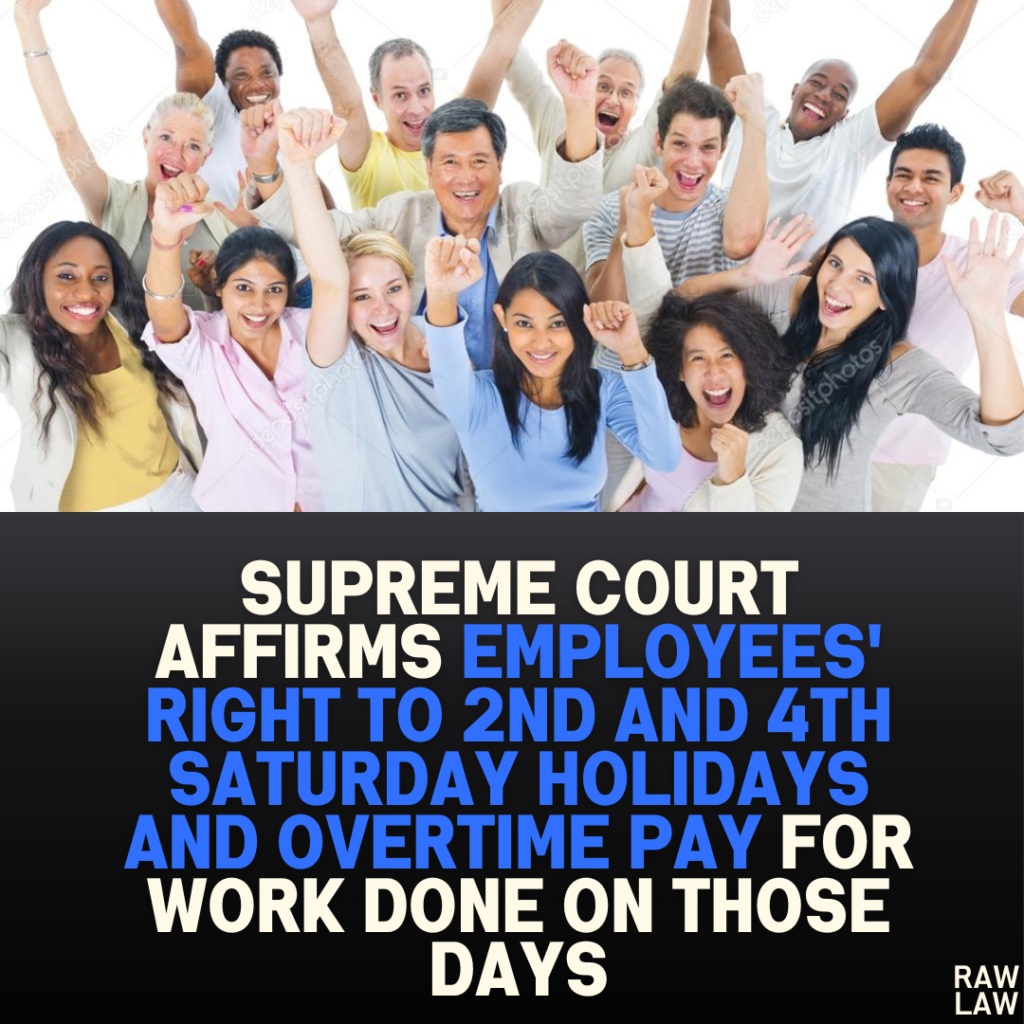Court’s Decision
The Supreme Court of India dismissed the appeal filed by the appellants-employer and upheld the judgment of the High Court of Bombay, which affirmed the order of the Industrial Court. The respondent-employees were held entitled to public holidays, holidays on the 2nd and 4th Saturdays, and overtime compensation for work performed on these holidays under the Kalelkar Award.
Facts
The respondents were appointed to various positions in the Public Works Department between 1982 and 1997. In accordance with the Kalelkar Award, they were placed on the Converted Temporary Establishment from February 27, 2004, which entitled them to benefits such as public holidays and holidays on the 2nd and 4th Saturdays. However, these entitlements were denied by the appellants-employer, leading the respondents to file a complaint under the Maharashtra Recognition of Trade Union and Prevention of Unfair Labour Practice Act, 1971.
Issues
The central issue was whether the respondent-employees, working under the Kalelkar Award in a Converted Temporary Establishment, were entitled to public holidays, holidays on the 2nd and 4th Saturdays, and overtime pay for work performed on these holidays.
Petitioner’s Arguments
The appellants-employer contended that the respondent-employees, being temporary workers, were not entitled to the same privileges as permanent employees. They argued that the benefits of holidays and overtime pay under the Kalelkar Award should not extend to them. Additionally, the appellants relied on a Circular issued by the Government on May 27, 1996, which they claimed excluded the respondents from these benefits.
Respondent’s Arguments
The respondent-employees argued that they were entitled to the benefits of public holidays and holidays on the 2nd and 4th Saturdays, along with overtime compensation, as per the Kalelkar Award. They contended that the denial of these benefits constituted unfair labor practices.
Analysis of the Law
The court examined the provisions of the Kalelkar Award, which specifically provided for the entitlement to holidays and overtime allowances for employees in the Converted Temporary Establishment, except for daily-wage workers. The Circular relied on by the appellants did not apply to the respondent-employees and did not negate the benefits granted under the Award.
Precedent Analysis
No specific precedents were mentioned in the judgment that were directly applicable to the interpretation of the Kalelkar Award and the entitlement to holidays and overtime.
Court’s Reasoning
The Supreme Court found that the respondent-employees were covered under the Kalelkar Award and were entitled to the claimed benefits. The appellants’ reliance on the 1996 Circular was misplaced, as it did not affect the employees placed in the Converted Temporary Establishment. The court upheld the findings of the Industrial Court and the High Court.
Conclusion
The Supreme Court dismissed the appeal and directed the appellants to comply with the orders passed by the Industrial Court and the High Court within eight weeks, granting the respondent-employees their entitled holidays and overtime compensation.




Pingback: Bombay High Court: Acquits Accused in POCSO Case; Cites Lack of Evidence, Delayed FIR, No Medical Corroboration, and Questionable Witness Credibility in Order - Raw Law